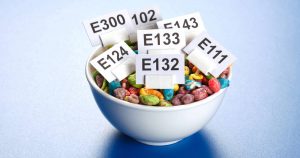![]()
Sabinsa
Corporation has received Halal certification for a number of its
dietary supplement ingredients, opening up their use in products
targeting Muslim populations.
The
company yesterday said the certification by the Islamic Foods and
Nutritional Council of America (IFANCA) applies to a range of its
standardized botanical extracts, probiotics, enzymes and minerals.
“The
addition of Halal certified products will not only allow us to enter
different world markets, but also help our customers meet regulatory
requirements and demand from the Muslim community,” said Shaheen Majeed, Sabinsa’s director of marketing.
Ingredient range
Sabinsa,
which said all its ingredients are already certified as Kosher, said
the new Halal certification applies to ingredients including Bioperine,
ForsLean, Fabenol, Curcumin C3 Complex, Cococin, Boswellin, Lactospore,
Digezyme and Selenium SeLECT.
ForsLean is an extract derived
from Coleus forskohlii roots, a plant native to warm temperate habitats
including India. Coleus forskohlii is the only known plant source of
forskolin, a natural compound that has been shown to increase lean body
mass and help optimize body composition and therefore help in weight
management.
Selenium is a trace mineral that is found naturally in soil. When consumed, selenium
enters the body to form selenoproteins and glutathione, the body’s
antioxidant immune system detoxifier. Sabinsa claims its Selenium
SeLECT, an L-(+)-Selenomethionine compound, is the most bioavailable,
pure and safe form of selenium available on the marketplace.
Bioperine
is a standardized black pepper extract that contains 95 percent of
piperine. It is thought to increase the absorption of nutrients in
nutritional supplement formulations.
Cococin is a standardized
composition of coconut water solids, obtained from tender green
(immature) by freeze-drying and rich in magnesium and potassium.
Fabenol is a standardized extract from the seeds of the kidney bean that is used to support weight management.
In
addition: Curcumin C3 Complex is an extract of turmeric standardized to
95 percent curcuminoids; Boswellin is an extract of Boswellia serrata
that has been shown to have anti-inflammatory properties; Lactospore is
a lactic acid bacillus preparation; and Digezyme is a multi-enzyme
complex derived from fermented grain composition.
Sabinsa said additional product certifications are underway.
Market
According
to Dewi Hartaty Suratty, head of the Halal Certification Strategic Unit
at Majlis Ungara Islam Singapura (MUIS) who spoke at a symposium
organized by SAFC last October, the global Halal food market is worth
more than US$560bn.
On average, one in four of the world’s
estimated 900m to 1.3bn Muslims eat Halal food, meaning there is a
massive market for food companies and the ingredients companies that
supply them, she said.
The US market for Halal foods continues
to grow as the country’s Muslims grow accustomed to seeing Halal in
their grocery aisles, but also as a result of demand from non-Muslims
who see Halal as a ‘value-added’ or ‘healthier’ option.
As such, for food processors, going through the Halal
certification process opens up the possibility of additional clientele
– even if they do not have to make changes to their product to get such
certification.


